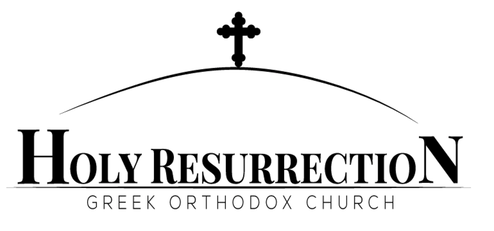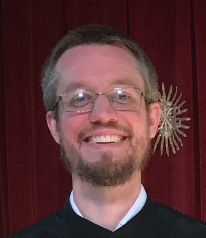One way to help westerners glimpse the nature of the divide is by shedding light on the paradigmatic battle between the heretic Barlaam and St. Gregory Palamas in the fourteenth century. Because this event took place in the post-schism east, it is especially absent from western Christian consciousness, yet it highlights some of the most significant and fundamental issues that divide east from west and—I would say, along with the Orthodox Church—truth from error.
Metropolitan Hierotheos Vlachos succinctly lays out the issue at the heart of the controversy:
Barlaam maintained that one could reach God through philosophy and conjecture, while St. Gregory Palamas, having experienced the actual road that leads to the knowledge of God, upheld the Orthodox view that it is only through purity that one can see God. (St. Gregory Palamas as a Hagiorite, p. 46)
Those who live purified lives—through a life of asceticism and noetic prayer, sustained and sanctified by the sacraments, in obedience to Christ through his Church—and are thereby granted to see the Uncreated Light of God (Matt. 5:8), in turn nourish the Church with the truth that has been revealed to them, and this wisdom is transmitted within the living tradition of the Orthodox Church. Contrast this approach with the scholasticism that dominates Roman Catholic theology—especially since Aquinas—and which formed the very foundations of the Reformation (e.g. Sola Scriptura), and you begin to see how deep the divide is. This divergence is manifested in the west today in the supremacy of the historical-critical method in Biblical exegesis, along with the submitting of all theological validity to the realm of discursive reason and “scientific” or quasi-scientific methods of inquiry.
Some might point to certain Roman Catholic saints, or holiness movements within Protestantism—spurred by the likes of John Wesley or Jonathan Edwards—which perhaps acknowledge the primacy of purifying the heart—of holiness—in knowing God. While I would applaud such insight from western theologians and western saints where it occurs, separated from the wellspring of the life of the Church, and with epistemological and doctrinal foundations that are still rooted in scholasticism, this truth has only ever been fleetingly and dimly glimpsed in the post-schism west. The precise method for success is handed down by those who have attained the light, and it can’t be stumbled upon in its fullness apart from that living tradition.
Met. Hierotheos also notes, writing about St. Gregory’s thought in distinction from Barlaam’s:
The witness of the saints is not intellectual and conjectural, but empirical… Because they have freed their nous from reasoning, passions and environmental conditions, the nous has been illuminated by divine Grace and guided to the vision of God. (St. Gregory Palamas as a Hagiorite, pg. 29)
With such being the conditions for seeing God—and therefore for true knowledge about God—these are the means by which all the great Orthodox Saints obtained deification.
Founded on principles foreign to the apostolic, patristic, living tradition of the Church, Barlaam’s approach to theology necessarily ends in agnosticism. Founded on Christ, the Apostles, and the undivided witness of the Orthodox Church, the teaching of St. Gregory Palamas provides the only way to come into direct, living contact with the “energies” of God—which are God himself.


 RSS Feed
RSS Feed